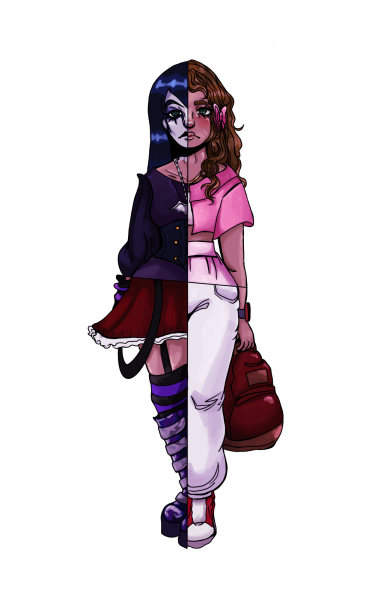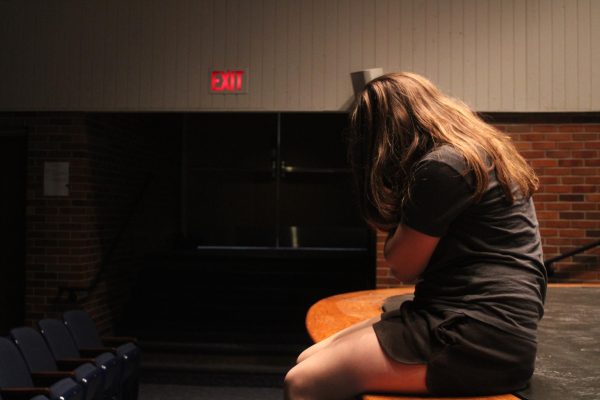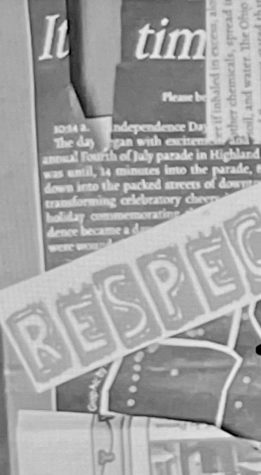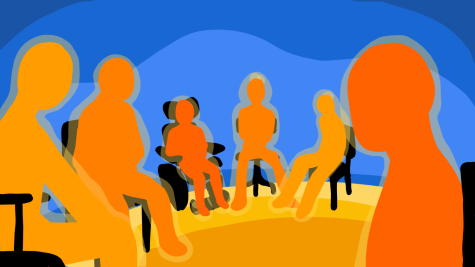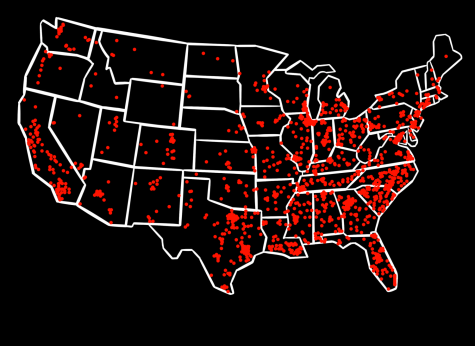What happened to civility?
November 12, 2021
“We need some assistance, there has been an altercation,” blasts from the walk- ie talkie on Dean Damien Braude’s desk. He sprints into the hallway packed body to body, and pushes his way through the crowd surrounding the cafeteria. While security tries in vain to break up the fight, every student holds their phone above the crowd, and in minutes, the video will spread like wildfire across the school.
As students re-enter and acclimate themselves to an environment they have not seen in 17 months, one thing has been made apparent: an obvious lack of civility that has left Braude discouraged.
Students and staff have witnessed devi- ations from expectations regarding basic etiquette. This has included but is not lim- ited to the following: physical altercations amongst the students, vandalization of shared public spaces, and the overall lack of courtesy.
The Oracle Editorial Board recognizes the difficulties of returning to in-person school but urges the Glenbrook communi- ty to uphold the core values that define us as Titans, among those being respect.
Ronald Bean, assistant principal and dean of students, expressed his concern and uneasiness with the current culture at South. Acknowledging the difficulties and
tragedy the pandemic had forced onto us, Bean stressed his understanding of how reacclimating to a less isolated life can be difficult.
“People dealt with a lot of different kinds of trauma,” Bean said. “I think [af- ter] being in the model that we were in for as long as we were, people forgot what it was like to do school.”
The overall rift in communication with- in the South community has led to an ap- parent disregard for common courtesy, Bean said, resulting in a call for a re-eval- uation of behavioral habits amongst our student body. Certain behaviors students and staff have been witnessing, such as the fights, are threatening the moral civil- ity amongst our community.
Junior Alyssa Yagelski witnessed one of the fights that broke out in the Autos Courtyard and watched as two students collided onto the pavement. While cred- iting the administration’s quick work to the scene, Yagelski still wishes there were ways to prevent the fights altogether.
“I think the administration does a good job on the walkie-talkies and [try- ing] to get other administrators to come and help, but I don’t think it happens fast enough,” Yagelski said.
While students are discouraged from
mirroring faculty members’ hands-on ef- forts to de-escalate the fights, Bean said that everyone needs to be more cognizant of how their actions may be negatively contributing to this culture.
“Don’t videotape it, don’t take your phones out, don’t circle around and laugh and be a part of the nonsense that’s going on,” Bean said.
Bean recognizes that although not all students have participated in these situa- tions which demonstrate a lack of civility, the impact caused by those involved has been felt throughout South’s staff mem- bers. The acts of destruction towards the school have caused the maintenance de- partment to spend extra time making sure the school we attend is safe and clean, Bean explained. Similarly, the parapro- fessionals who supervise and oversee the well-being and activity of students during school hours have had to follow new pro- tocols regarding students’ safety.
Yagelski believes South is a place of well- distinguished students, but the com- mon occurrence of physical attacks and destruction of school property has made it difficult to maintain a positive perception of the school atmosphere.
“I thought [destruction of school prop- erty] was one of the most irresponsible
things a student could do,” Yagelski said. “Doing something illegal, recording it, and putting it on the internet just isn’t smart. It’s super disrespectful to the school.”
Social worker David Hartman said the school has implemented resources to help students who may be experiencing diffi- culties adjusting to in-person learning, and to prevent interpersonal conflicts.
“We change the way we do orienta- tion to try to create more opportunities for kids to come into school, in smaller numbers,” Hartman said. “We are running groups for social problem solving. And we are running groups for [those experienc- ing] anxiety that we’ve never run before.”
There is a large portion of the student body that has not engaged in these unciv- ilized activities, and Bean emphasized the importance of recognizing that this cul- ture does not reflect the values of the en- tire South community.
“Most of the kids in this building are not fighting,” Bean said. “Most of the kids in this building are coming to school ev- ery day, going to class, participating, [and] enjoying all the great things that go on in this building. It’s unfortunate that right now the stories that are out there are just snapshots of what’s going on any given day.”







